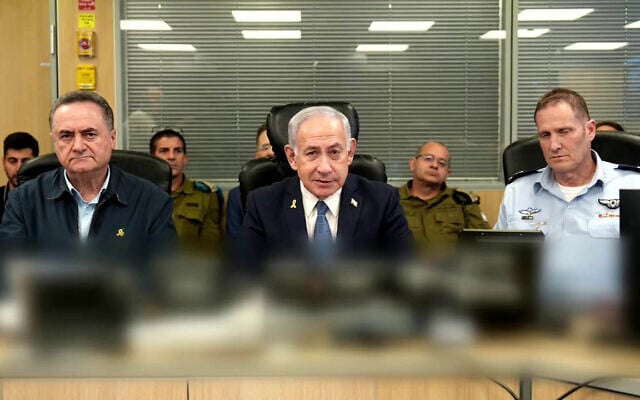
US Special Envoy to the Middle East Steve Witkoff arrives for a signing ceremony at the Royal Palace in Doha on May 14, 2025. (Karim Jaafar/AFP)
| Published May 16, 2025
Arab sources tell ToI Trump envoy currently working to coax Hamas to release smaller number of hostages than Israel has been demanding, hoping to meet parties halfway
In a recent development, U.S. Special Envoy to the Middle East, Steve Witkoff, conveyed to regional mediators that the United States does not intend to compel Israel to end its military operations in Gaza. This statement comes amidst ongoing discussions and differing perspectives between the U.S. and Israeli leadership regarding the approach to the conflict.
While the U.S. has expressed concerns over the humanitarian situation in Gaza and has been involved in facilitating negotiations, including proposals for hostage releases and ceasefires, it maintains that decisions regarding military actions rest with Israel. Prime Minister Benjamin Netanyahu has indicated openness to a temporary ceasefire contingent upon the release of hostages by Hamas, but has not committed to a complete cessation of military activities.
Prime Minister Benjamin Netanyahu (C), Defense Minister Israel Katz (L) and Brig. Gen. Omer Tischler, the IAF’s chief of staff, observing strikes on Houthi targets in the Yemeni capital of Sanaa, at the Kirya military headquarters in Tel Aviv on May 6, 2025. (Screenshot)
The situation underscores the complexities of international diplomacy in conflict zones, where strategic interests, humanitarian concerns, and political considerations intersect. The U.S. continues to engage with regional partners to seek avenues for de-escalation and resolution, while respecting the sovereignty of its allies.
The U.S. decision not to force Israel to end its Gaza operations has several key implications:
1. U.S. Respects Israeli Sovereignty:
-
The decision aligns with the principle of non-interference in allied nations’ defense decisions, affirming that Israel has the right to defend itself against terrorist threats like Hamas.
-
It sends a message that the U.S. will not pressure its allies into making security decisions against their interests.
2. Strengthening the U.S.-Israel Alliance:
-
By avoiding coercive diplomacy, the U.S. demonstrates a commitment to maintaining a strong, respectful partnership with Israel.
-
This approach reinforces trust between the two nations, essential for long-term security cooperation.
3. Prioritizing Security Over Diplomacy:
-
Conservatives may view this as a clear rejection of appeasement strategies that could embolden terrorist organizations.
-
It emphasizes that diplomatic pressure should not compromise the right of a sovereign nation to eliminate threats.
4. Avoiding a Weakness Narrative:
-
The U.S. avoiding direct pressure on Israel prevents perceptions of American weakness, especially among adversaries in the Middle East.
-
It shows that the U.S. stands firm with its allies and does not capitulate to international diplomatic pressure.
5. Reinforcing the War on Terror:
-
Conservatives are likely to see this as consistent with a strong anti-terror stance, rejecting any moral equivalence between democratic Israel and terror groups like Hamas.
-
It reinforces the idea that those who use terrorism cannot dictate terms to sovereign nations.
An Israeli strike in Jabalia in the northern Gaza Strip on May 15, 2025 (Bashar TALEB / AFP)
Overall Takeaway:
The U.S. decision not to force Israel to end its Gaza operations is a strong affirmation of American support for Israeli sovereignty and self-defense. It reinforces the U.S.-Israel alliance, rejects appeasement of terrorist groups, and signals that America stands firmly with its allies without yielding to international pressure.
SOURCES: THE TIMES OF ISRAEL – Witkoff told mediators US not planning to force Israel to end Gaza war, officials say
MATZAV – Report: Witkoff Told Mediators US Not Planning To Force Israel To End Gaza War, Officials Say







Be the first to comment